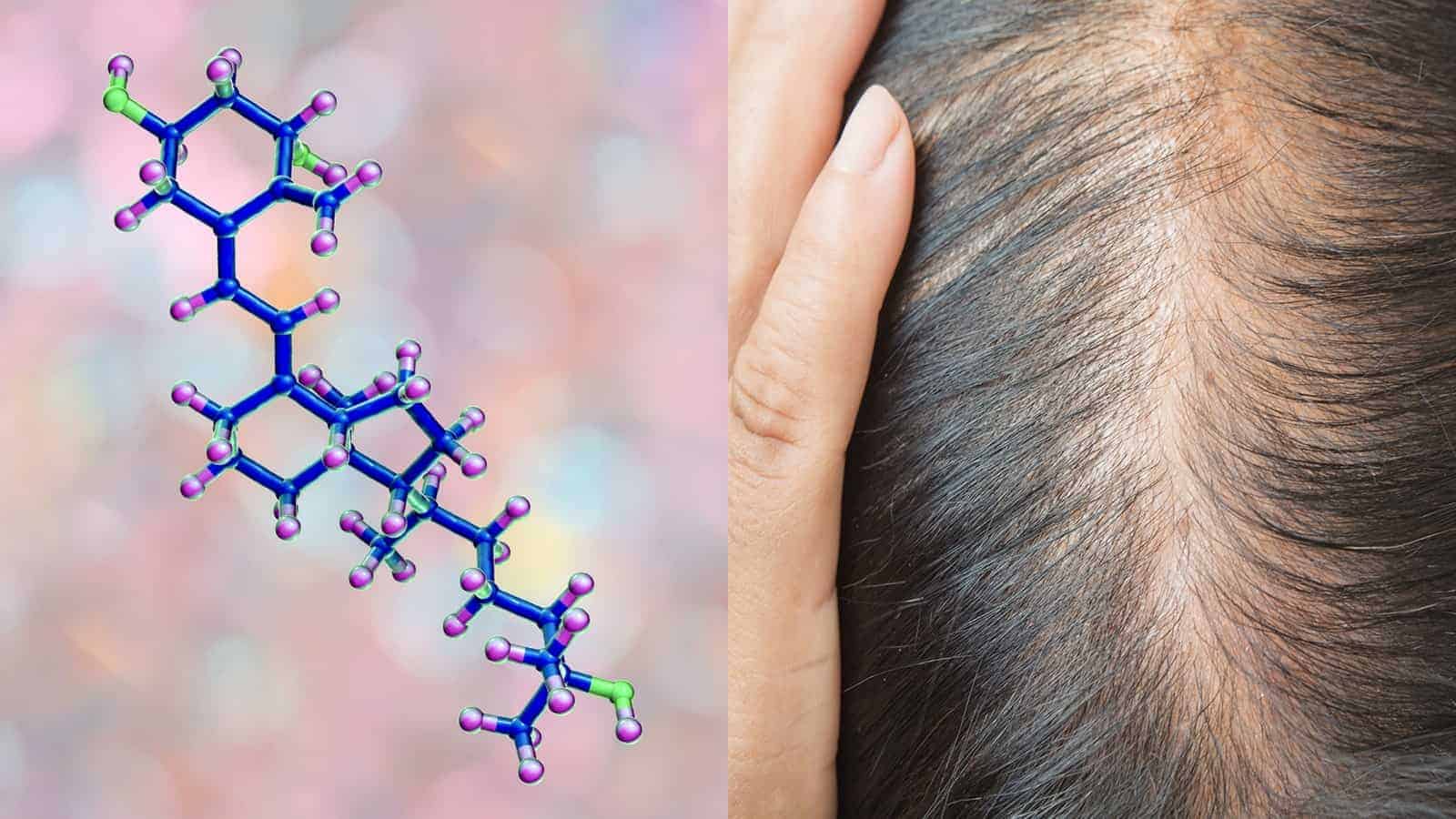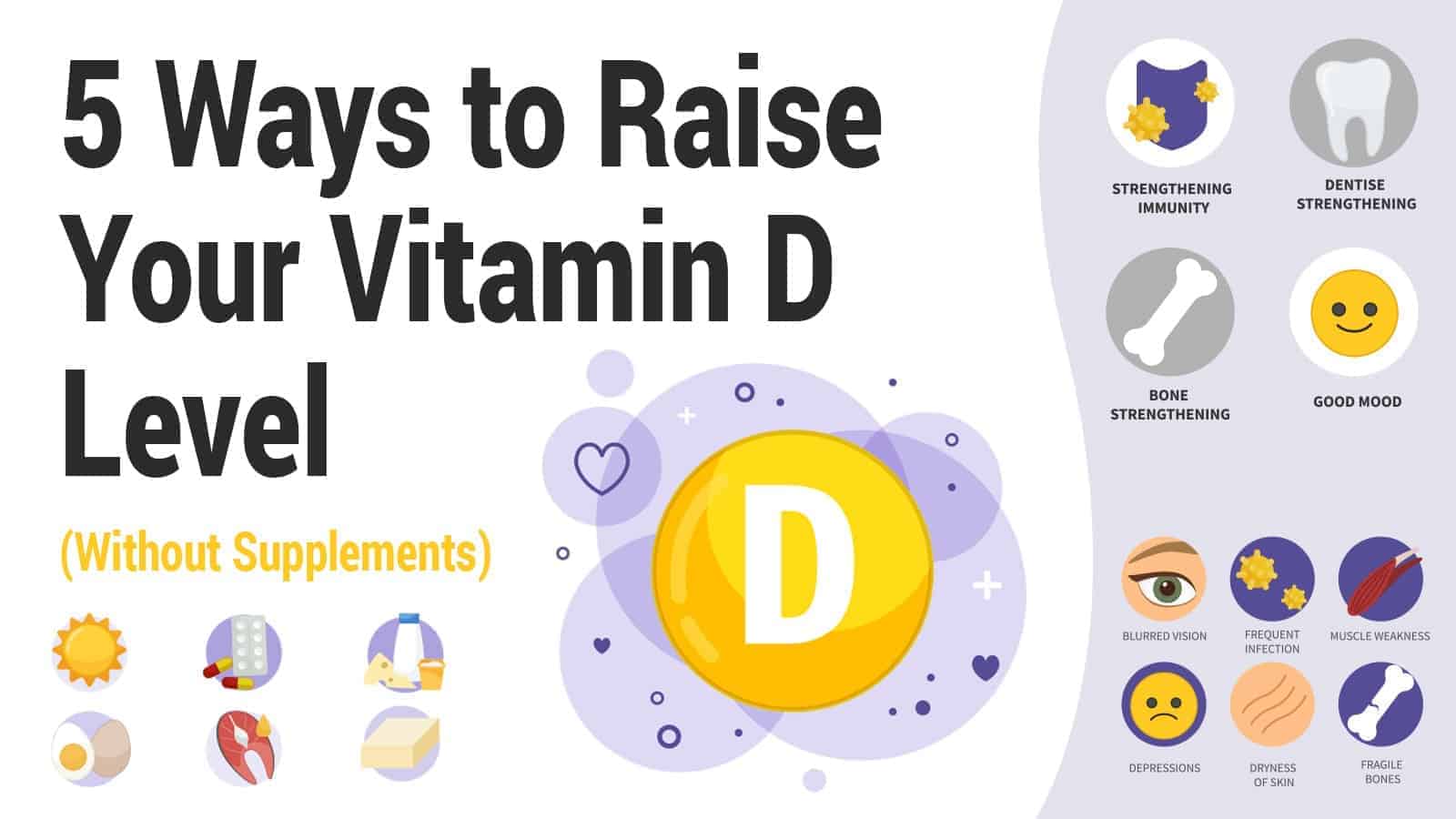Do you suspect a vitamin D deficiency is causing your hair loss?
Aside from being physically active, the body must also receive the right amount of vitamins and minerals for good health, according to the FDA (Food and Drug Administration). While there is some debate regarding what is considered essential, most would agree that vitamin D, magnesium, calcium, zinc, iron, folate, and vitamin B-12 all contribute to good health. That said, being deficient in any to these vitamins or minerals can lead to a variety of health problems.
Therefore, it is in your best interest to consume whole foods that contain these vitamins and minerals. Conversely, you must take dietary supplements to help boost your immune system, gain more energy, and improve your overall health. In this article, we will detail what constitutes a vitamin D deficiency and how it may contribute to hair loss.
IS THERE A LINK BETWEEN VITAMIN D DEFICIENCY AND HAIR LOSS?
For those who may be unaware, vitamin D plays a critical role when it comes to stimulating hair follicles, which are the cells and connective tissue that surrounds the root of individual hairs. Therefore, it stands to reason that a deficiency in this vitamin would result in hair loss. However, hair loss can also occur as a byproduct of alopecia areata, an autoimmune condition that is also linked to low levels of vitamin D and causes circular or patchy balding that primarily affects the scalp.
Furthermore, vitamin D plays a key role when it comes to the body’s ability to create new hair follicles. So let’s put all of this into context. Being vitamin D deficient not only causes hair loss but also impedes your ability to generate new hair follicles that would otherwise lead to new hair growth.
ADDITIONAL SYMPTOMS OF VITAMIN D DEFICIENCY
While losing your hair is devastating, low levels of vitamin D can also lead to a number of physical and mental health problems including
- Decreased bone density and fractures
- Muscle weakness
- Wounds that are slow to heal
- Infertility
- Loss of stamina
- Fatigue
- High blood pressure
- Anxiety and depression
HOW TO TREAT LOW VITAMIN D LEVELS
If you believe that you have a vitamin D deficiency, you will be happy to know that there are a variety of delicious foods that can help return your vitamin D levels to a normal and healthy range. Some of the foods that are rich in vitamin D include beef liver, tuna, mackerel, oatmeal, and most dairy products.
Of course, this not a comprehensive list. Moreover, they are some of the more popular choices that many people tend to choose when trying to boost their vitamin D levels. It is also important to note that a diet consisting of healthy fats can improve how the body absorbs vitamin D from sunlight, foods, and supplements. Some of the best sources of dietary fats include
- Chia seeds
- Nuts
- Avocados
- Olive oil
WHEN SHOULD YOU CONSIDER SUPPLEMENTS?
Although you should never rely solely on supplements, they can provide you with the vitamins and minerals that you may not be getting from whole foods. Supplements are available in powder and pill form and can be taken daily, weekly, or monthly depending on your dietary needs.
WHAT CAUSES A VITAMIN D DEFICIENCY?
Generally speaking, vitamin D deficiency is usually the byproduct of a lack of sunlight or poor nutrition. However, this deficiency may also stem from an underlying health problem like celiac disease or other diseases that impede the body’s ability to absorb needed nutrients. In addition to a lack of sunlight exposure, poor nutrition, and underlying health problems, a deficiency in vitamin D can be the result of certain medications. Some of the primary contributors include glucocorticoids, antifungals, antibiotics, and anticonvulsant medication. The same may also apply to certain HIV medications as well.
HOW MUCH VITAMIN D IS RECOMMENDED FOR GOOD HEALTH?
According to the Endocrine Society, an international medical organization in the field of endocrinology and metabolism, individuals who are between the ages of 19 and 55 should aim to consume 600 IU (international units) of vitamin D per day for optimal health. The Endocrine Society further states that between 600 to 800 IU per day is optimal for individuals who are age 55 and over and recommends 400 to 600 IU daily for young children. All in all, age plays a critical role when it comes to how much vitamin D is needed for good health. Before you decide to increase your daily intake of vitamin D, however, it is a good idea to speak with your physician who can perform a blood test to accurately assess your vitamin D levels to prevent vitamin D toxicity.
WHAT HAPPENS IF YOU TAKE TOO MUCH VITAMIN D?
According to Harvard Health Publishing, which is in partnership with Harvard Medical School, taking too much vitamin D negates the health benefits associated with the vitamin and increases toxicity in the body. Excessive amounts of vitamin D can cause calcium build up in the blood. And that can adversely affect the arteries, soft tissue, and kidneys. Beyond that, if your vitamin D levels are too high, your ability to absorb calcium from sunlight will be significantly reduced. Ideally, it would be in your best interest to avoid exceeding 800 IU per day.
CAN HAIR LOSS BE PREVENTED IF YOU HAVE A VITAMIN D DEFICIENCY?
If you are deficient in vitamin D, you should work with your physician, nutritionist, or dietician to determine how much vitamin D you will need to get your levels back to normal. While you work toward achieving that goal, you should avoid doing things that can exacerbate hair loss including
- Using harsh shampoos and conditioners
- Pulling or brushing your hair too vigorously
- Braiding your hair
- Hairstyles that are too taxing on the hair
HOW DOES THE BODY ABSORB VITAMIN D?
The body absorbs vitamin D by undergoing a process called hydroxylation. During this process. the liver and kidneys convert the Vitamin D that is received via sunlight and food sources into calcitriol. That is what the body uses to boost the immune system, fight disease, strengthen bones, and much more. It is important to note, however, that some people don’t benefit from sunlight exposure, particularly individuals with darker skin. After all, skin type, meaning melanin, determines how much vitamin D the body is capable of converting into calcitriol.
Of course, this is not to suggest that darker-skinned individuals don’t benefit from the sun at all; however, it will take longer for the skin to absorb the sunlight that the body needs to produce vitamin D. The same applies to where you live as sunlight is more prevalent in some regions than others. If you live closer to the equator, for example, you will have more opportunities to bask in the sunshine than someone who lives further away from the equator.
COMMON MISCONCEPTIONS ABOUT GETTING VITAMIN D FROM SUNLIGHT
One of the biggest concerns that most people have relative to sun exposure and vitamin D is that exposing their bare skin to the sun can cause skin damage. Indeed, excess sun exposure can irritate the skin in more ways than one. However, you don’t need to be in direct sunlight for too long before your body starts to take advantage of the sun’s ultraviolet rays. In fact, you only need to expose your bare skin to the sun for a few minutes per day for your body to produce the vitamin D that it needs.
Ideally, you will want to expose larger amounts of skin like you back, arms, and face, for example, for best results. Of course, the time of day that you choose to bask in the sun will be a factor as well. Generally speaking, around midday would be the best time to expose your skin to the sun. That’s because this is when the sun’s rays are the strongest and enters the Earth’s atmosphere at the highest angle. It is important to note that this only applies during the summer. During the winter, you will not be able to absorb nearly enough sunlight for your body to produce vitamin D. As such, you will need to make sure you’re consuming foods rich in vitamin D and taking supplements if necessary.
In summation, vitamin D is an essential vitamin that not only helps prevent hair loss. In addition, it provides a variety of health benefits. If you’re experiencing symptoms synonymous with a vitamin D deficiency, schedule an appointment with your physician or nutritionist. Those experts can recommend a course of treatment that is right for you.
“
“














 Community
Community

